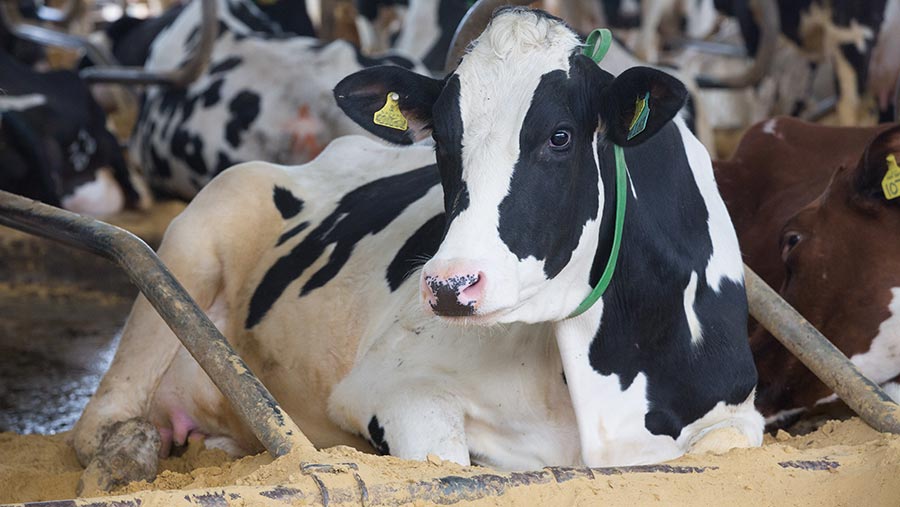Farmers on high alert after bluetongue confirmed in Kent
 © Tim Scrivener
© Tim Scrivener Livestock farmers across the UK are being urged to stay vigilant after bluetongue virus (BTV) was detected in a dairy cow in Kent – the first confirmed case of the virus in Great Britain for 16 years.
The single case of the BTV 3 strain was confirmed at a dairy farming business near Canterbury, Kent on Saturday 11 November.
A 10km temporary control zone has been put in place around the affected farm, and the movement of susceptible animals is being restricted except under licence. Additional surveillance is also being undertaken to ensure this is an isolated case.
See also: Farmers warned to stay alert after Dutch bluetongue outbreak
The Animal and Plant Health Agency (Apha) and the Pirbright Institute identified the disease in the cow through Great Britain’s annual bluetongue surveillance programme.
Robust surveillance
Christine Middlemiss, the UK’s chief vet, said: “Bluetongue does not pose a threat to human health or food safety, but the disease can impact livestock farms and cause productivity issues.
“This detection is an example of our robust disease surveillance procedures in action, and it is also a clear reminder for farmers that the disease remains a threat, despite coming towards the end of the midge activity season.
“Farmers must remain vigilant and report any suspicions to Apha.”
The confirmation that bluetongue has been detected in England comes after hundreds of farms in the Netherlands, Belgium and Germany have been grappling with the disease, with some sheep farms losing up to a third of animals.
There is added concern as there is currently no commercial vaccine against BTV 3 approved for use in the UK, and vaccination for serotypes 1, 2, 4 and 8 will not offer cross protection.
BTV is transmitted by biting midges and affects cows, sheep, goats and camelids such as llamas.
The midges are most active between April and November and not all susceptible animals show immediate, or any, signs of contracting the virus.
The impacts on susceptible animals can vary greatly – some show no symptoms or effects at all, while for others it can cause productivity issues such as reduced milk yield, while the most severe cases can be fatal.
Consider origin of stock
The Farmers’ Union of Wales is urging farmers to consider the origin of purchased stock and the use of overwintering in high-risk areas of England.
With the confirmation of bluetongue virus in a non-imported animal in England, some trading partners may restrict exports of bluetongue-susceptible animals or their products.
The latest information on the availability of individual export health certificates can be found on the gov.uk website.
The last outbreak of BTV in Great Britain was in 2007, meaning it has remained officially free of the virus since 2011.
BTV is a notifiable disease and suspicion of the disease in animals in England must be reported to Apha on 03000 200 301.
